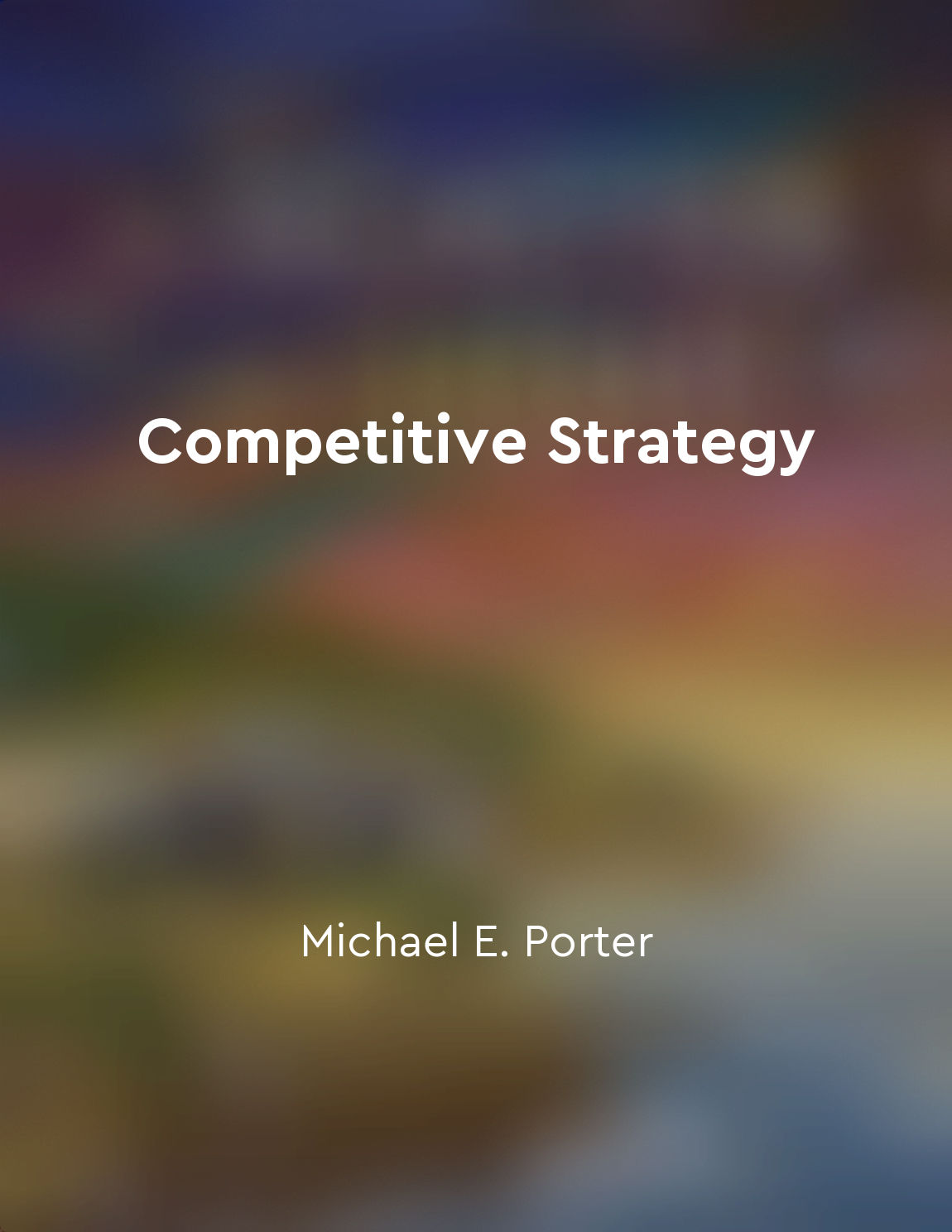Mergers and acquisitions can impact industry structure and competitiveness from "summary" of Competitive Strategy by Michael E. Porter
Mergers and acquisitions have a profound effect on the structure and competitiveness of industries. When two companies come together through a merger or acquisition, they often combine resources, capabilities, and market share, which can result in a significant shift in the competitive dynamics of the industry. One of the most immediate impacts of mergers and acquisitions is on industry structure. By consolidating market share, companies can increase their bargaining power with suppliers and customers, leading to a more concentrated industry with fewer players. This increased concentration can make it more difficult for new entrants to break into the market, as the larger, more established players have a stronger foothold. Moreover, mergers and acquisitions can also impact the competitiveness of the industry. When two companies merge, they may be able to achieve economies of scale or scope that were not possible when operating independently. This can lead to cost savings, improved efficiency, and increased profitability, which can give the merged entity a competitive advantage over its rivals. However, the impact of mergers and acquisitions on competitiveness is not always positive. In some cases, mergers can lead to a decrease in competition, as the merged entity may have less incentive to innovate or offer competitive pricing. This can result in higher prices for consumers and reduced choices in the market, which can ultimately harm industry competitiveness.- Mergers and acquisitions can have a significant impact on industry structure and competitiveness. While they can lead to greater efficiency and profitability for the companies involved, they can also result in increased market concentration and decreased competition, which can have negative implications for consumers and other industry participants.
Similar Posts
Pay attention to valuation metrics
Valuation metrics are crucial when it comes to investing in stocks. These metrics help investors determine whether a stock is o...
Consumer surplus measures consumer benefit
Consumer surplus is a concept that reflects the benefit consumers receive from purchasing a product or service. It represents t...

International competition shapes domestic industry dynamics
The interplay between international and domestic competition is a critical factor in determining the dynamics of industries wit...

Market competition boosts quality
The market is a powerful force that drives companies to constantly improve their products and services to stay ahead of the com...
Human capital enhances economic productivity
Human capital refers to the knowledge, skills, experience, and attributes possessed by individuals that make them productive co...
Emotions must be kept in check when making investment decisions
Investing is not for the faint of heart. It requires a rational and disciplined approach, especially when it comes to making de...

Efficiency should guide antitrust policy
Antitrust policy should be primarily concerned with promoting economic efficiency. This principle reflects the recognition that...

